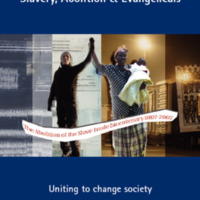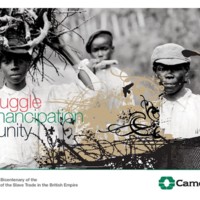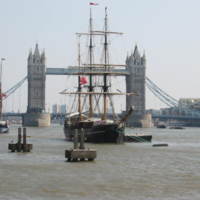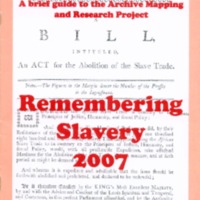
Slavery, Abolition & Evangelicals: Uniting to change society
The official publication from the Evangelical Alliance to commemorate the bicentenary had three main aims: to draw attention to biblical perspectives on slavery and society, to examine the contributions of some key abolitionists, and to offer some suggested activities for churches and groups to mark the bicentenary.

Struggle, Emancipation and Unity
The year-long programme of commemorative events from Camden Council was put together in consultation with the 1807-2007 Taskforce of local African and Caribbean community leaders. The key to these events was remembering slavery through the resistance of Africans, their celebration in their liberation and their unity in tackling present-day inequalities. Camden’s 18th and 19th Century Slavery Trail was created around the area. In eight stops, it explored the lives of men and women connected to the slave trade who lived and worked in the London Borough of Camden. The Resistance Film Season, in partnership with the British Museum, explored the legacy of the slave trade through a mixture of contemporary and classic films. Other events also included local exhibitions, poetry readings, debates and talks.

Spirit of Wilberforce
The Centre for Contemporary Ministry (CCM) is an educational charity specialising in the study of contemporary social issues. The CCM established a slavery exhibition at their base, Moggerhanger Park in Bedfordshire, once country home of members of the Thornton family, cousins of William Wilberforce. A mobile travelling display toured local venues. ‘Free at Last?’ was also part of the Spirit of Wilberforce project. This initiative saw a replica of the 18th century slave ship ‘Zong’ sail into London on 29 March 2007. The replica ship was accompanied up the River Thames by HMS Northumberland as part of the Royal Navy’s contributions to the bicentenary. The ‘Slavery Past and Present’ exhibition on board the replica was opened by the Mayor of London – a virtual reality display depicted conditions on a slave ship. The exhibition continued at the church All Hallows by the Tower, exploring the work of the abolitionists and the legacy of slavery. HMS Northumberland also opened to the public - an exhibition on board explored the role of the Royal Navy in enforcing the 1807 Act.

Remembering Slavery Archive and Mapping Project
Remembering Slavery 2007 involved museums, galleries and other cultural organisations across the North East of England in a programme of exhibitions, events, performances, lectures and activities to explore the themes of slavery and abolition, and identify connections with the region.
The Remembering Slavery Archive Mapping and Research Project, led by the Literary and Philosophical Society in Newcastle and assisted by local history groups, uncovered a large amount of archival material in the region’s institutions, exposing many hitherto unknown links between the North East and the slave trade. The participating record offices and libraries were Tyne and Wear Archives Service, the Literary and Philosophical Society Library, the Northumberland Record Office and the Robinson Library’s Special Collections at the University of Newcastle upon Tyne. This reassessment of the North East’s involvement in slavery and the slave trade led to new published research, including John Charlton's 'Hidden Chains: the Slavery Business and North East of England 1600-1865'. There was also a lecture programme at the Literary and Philosophical Society, including talks by Professor James Walvin. Several of the project volunteers published essays based on their research in 'North East History 39' (North East Labour History Society, 2008). The North East Slavery and Abolition Group was established among the project volunteers, and further work on slavery and abolition was included in the Society’s North East Popular Politics project (NEPPP), 2010-13. Much of the material found in the 2007 project has been loaded onto the NEPPP database.